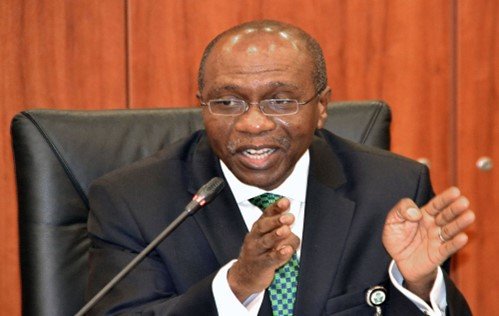The Governor of the Central Bank of Nigeria (CBN), Godwin Emefiele has stated that the optimal value of currency in circulation for the Nigerian economy should be about N700 billion.
Emefiele was reported to have said this at the Council of State meeting on February 10, 2023, by Femi Adesina, Special Adviser to President Buhari on Media and Publicity.
- Have you read these;
- We didn’t authorize banks to collect old N500 and N1,000 banknotes – CBN
- ELECTION: How to check your polling unit, code online
According to Adesina, Mr Godwin Emefiele had at the meeting painted a graphic picture of where the country was before the naira redesign policy announcement, where the country desires to be at the end, and the key benefits expected from effective implementation of the redesign policy.
In the report posted on his Facebook page, Adesina wrote that according to the Governor;
- The difficulty being experienced with the policy is transient, given the ultimate gain to the country.
- There are unscrupulous and unpatriotic elements among bankers, “whose greed and malevolence are sabotaging sabotaging the CBN’s efforts.”
- The policy is not targeted at anyone or group of persons, but rather derived from analysis to strengthen the country’s macroeconomic fundamentals and better the socio-economic conditions.
- The general practice across the globe is for central banks to redesign national currency within 5-8 years, but Nigeria has not done for over 19 years.
In addressing the aims of the policy, Emefiele said it was to make monetary policy more efficacious, increase financial inclusion, support security agencies to combat banditry and ransom-taking, and curb corruption.
Emefiele made some disclosure to the council;
In 2015, Currency-in-Circulation was only N1.4 trillion, but by October 2022, it had risen to N3.23 trillion, out of which only N500 billion was within the banking system, and N2.7 trillion held permanently in people’s homes. Such notes are then not available for economic activities.
He went on to say that the optimal value of currency in circulation for the Nigerian economy should be about N700 billion, but the country had over three trillion.
“So far, since the commencement of this program, we have collected about N2.1 trillion, leaving us with about N900 billion,” the Governor said. He then added, “We are happy that so far, the exercise has achieved a success rate of over 80 percent as about N2.7 held outside the banking system has been returned. Nigerians in rural areas have had opportunities to swap their old notes, leveraging on the Agent Swap initiative as well as the CBN Senior Staff nationwide sensitization team exercise.”
On the general benefits of the policy, the Governor said it would reduce the amount of cash in the underground or illicit economy, truncate the activities of racketeers, and obliterate rent-seeking businesses in the black market. It will also reduce inflation, and enhance stability of the naira exchange rate, he added.
Emefiele attributed the endless queue and pressure round the country to hoarding of new naira notes, tension and elevated agitation, panic, mop up of notes by some politicians, and incidences of economic opportunism.
In conclusion, Adesina reported that Emefiele stated , “The advantages of the currency redesign are enormous and will benefit the economy in the long run. We will take all the necessary steps to ensure that there will be a smooth flow of currency swap and minimize the inconvenience in the short term.”
Since the Council of States meeting, President Buhari has in a national broadcast directed the Central Bank of Nigeria to release the old N200.00 back in circulation and that it should be allowed to circulate as legal tender with the new N200.00 for a period of 60 days from February 10, 2023 to April 10 2023 when the old N20 notes ceases to be legal tender.
The old N500 and N1,000 ceased to be legal tender in Nigeria on 10th February, and the deadline given by the CBN to return all old notes elapsed on 17th February, 2023.
Nnamdi Maduakor is a Writer, Investor and Entrepreneur





















































